Enermax D.F. 500W PSU Review
The Enermax D.F. 500W is a fully modular PSU featuring high efficiency, quiet operation, and individually sleeved cables. But are those enough to justify its premium price tag?
Why you can trust Tom's Hardware
Packaging, Contents, Exterior, And Cabling
Packaging
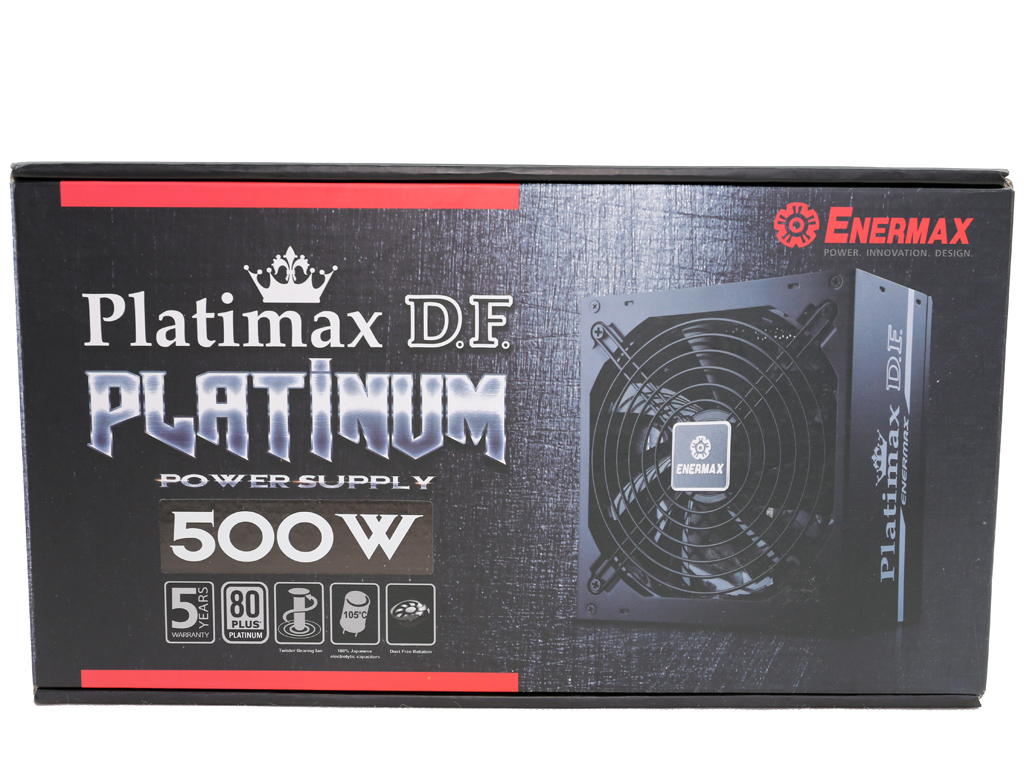
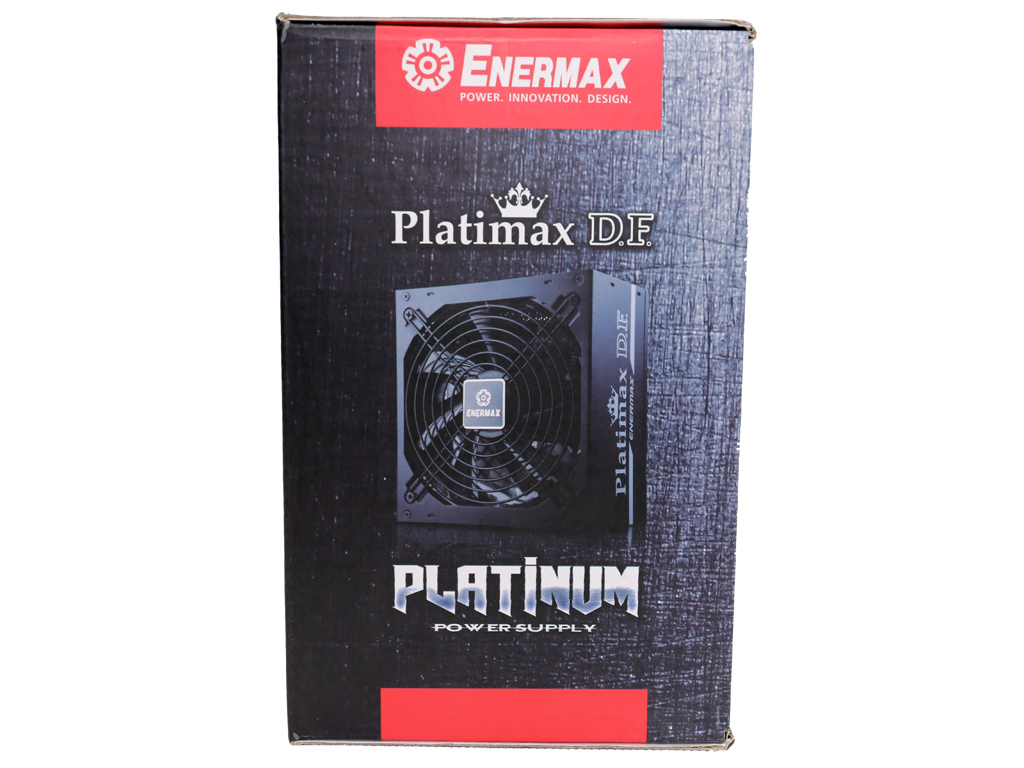
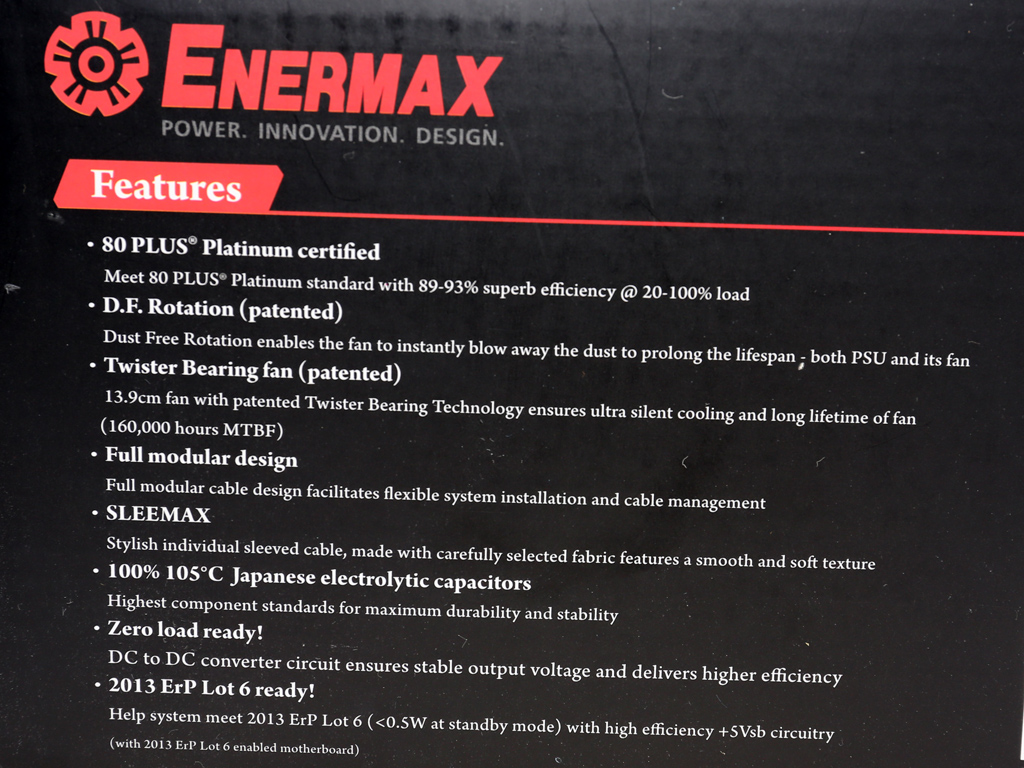
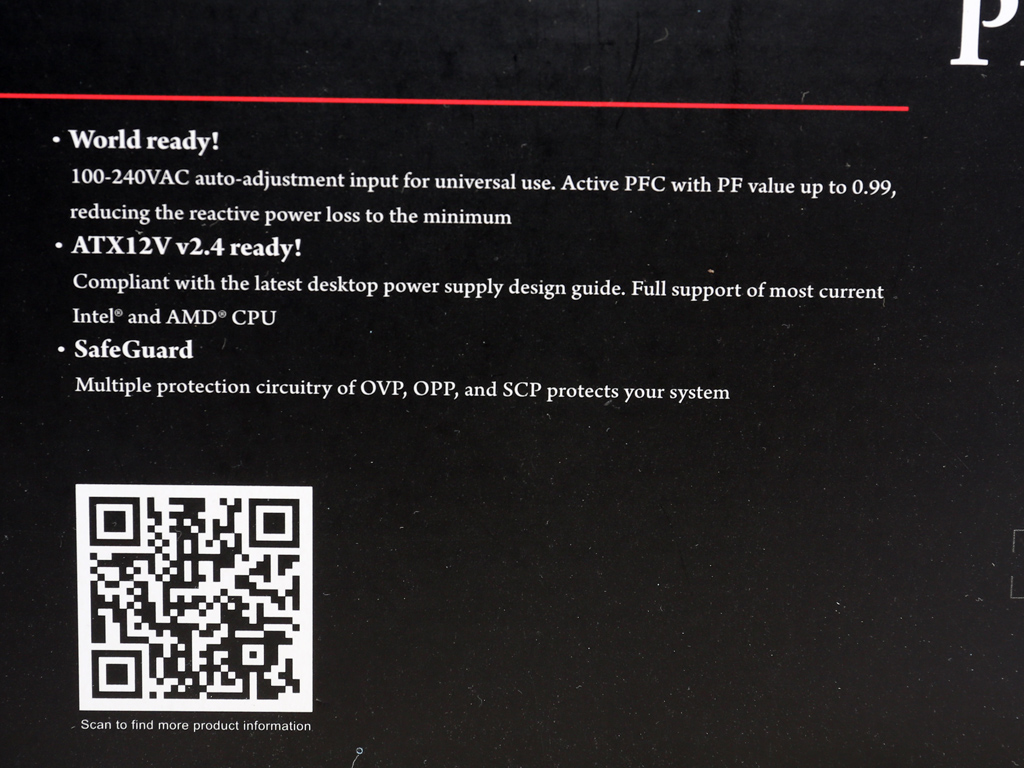
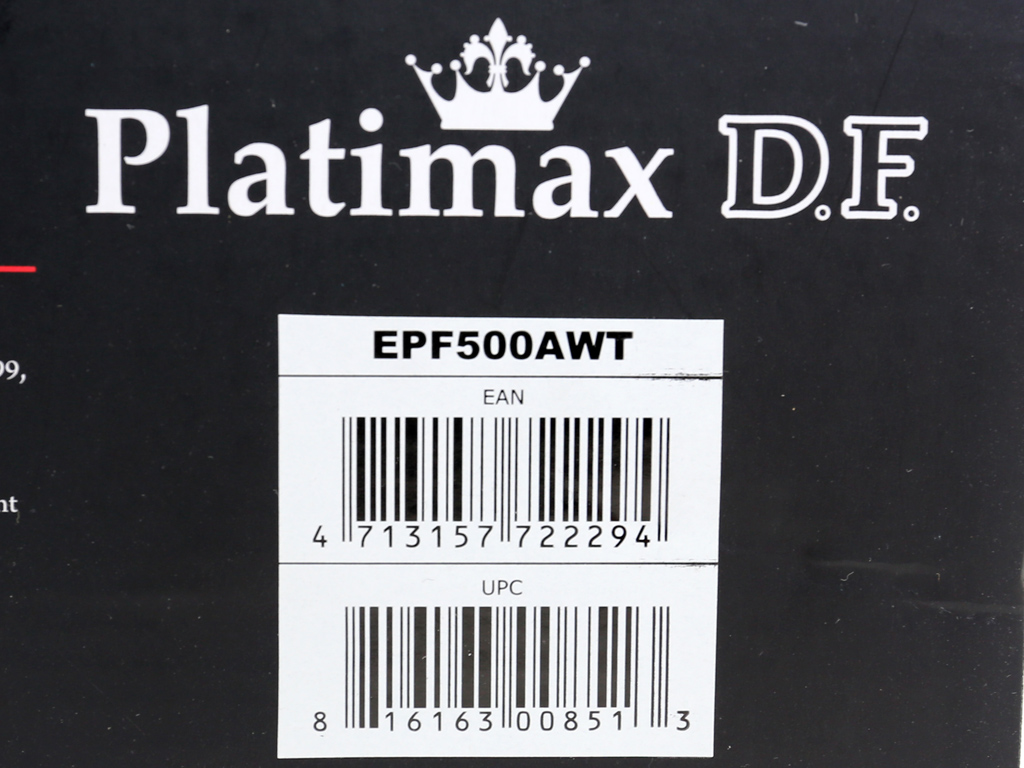
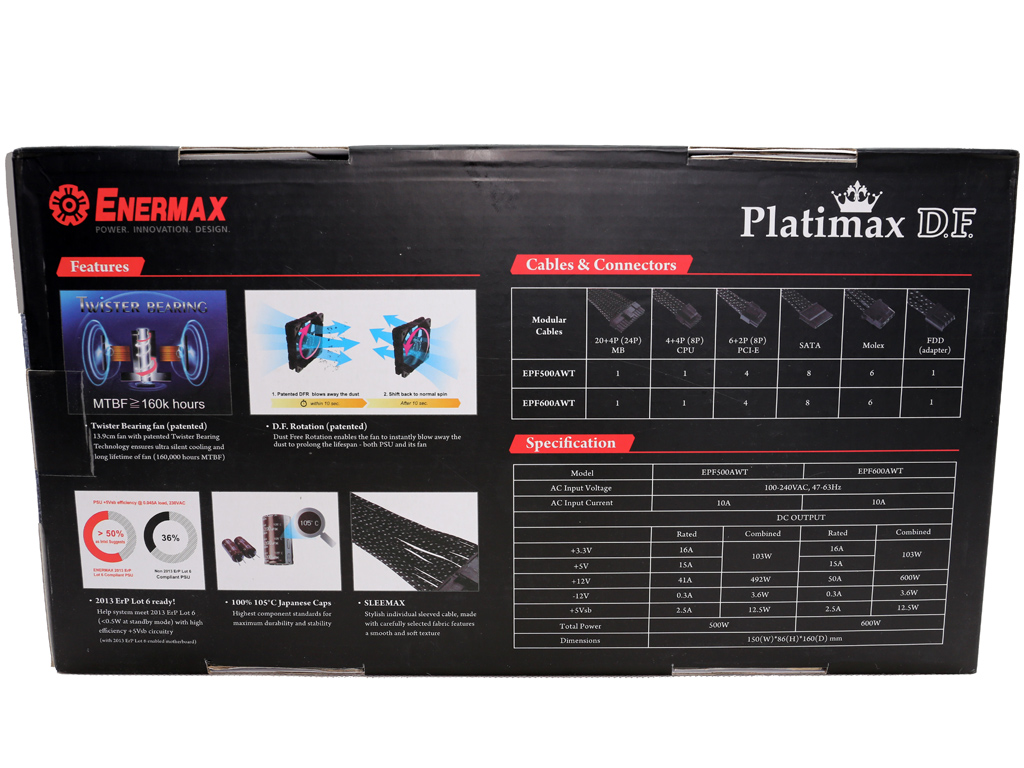
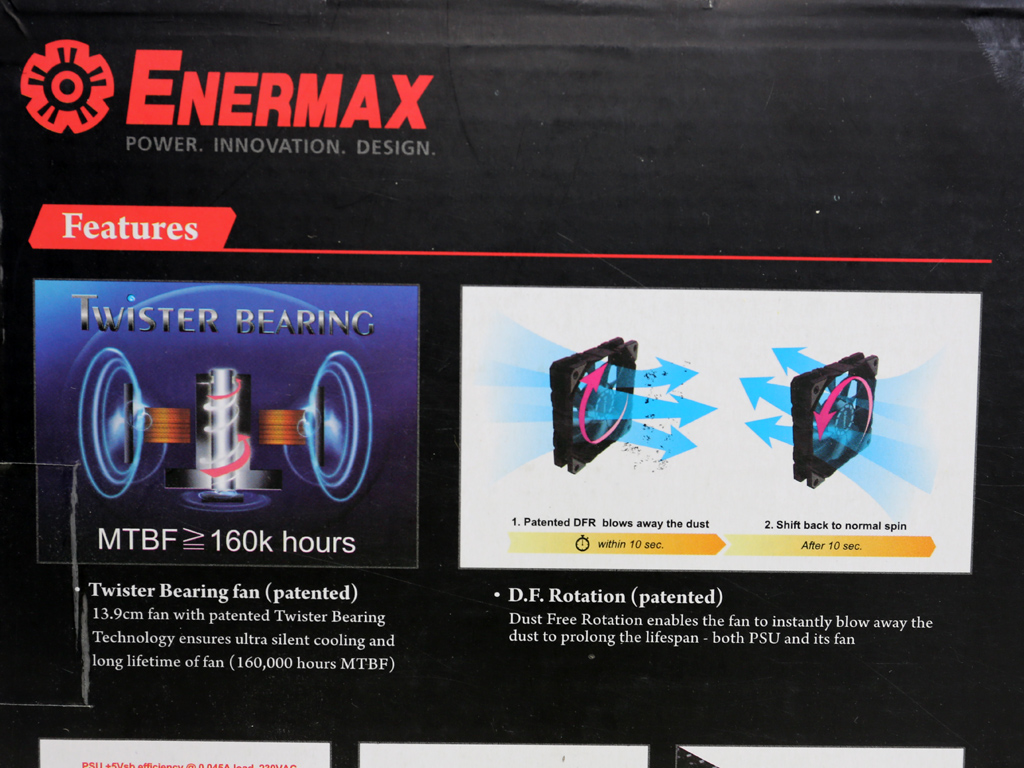
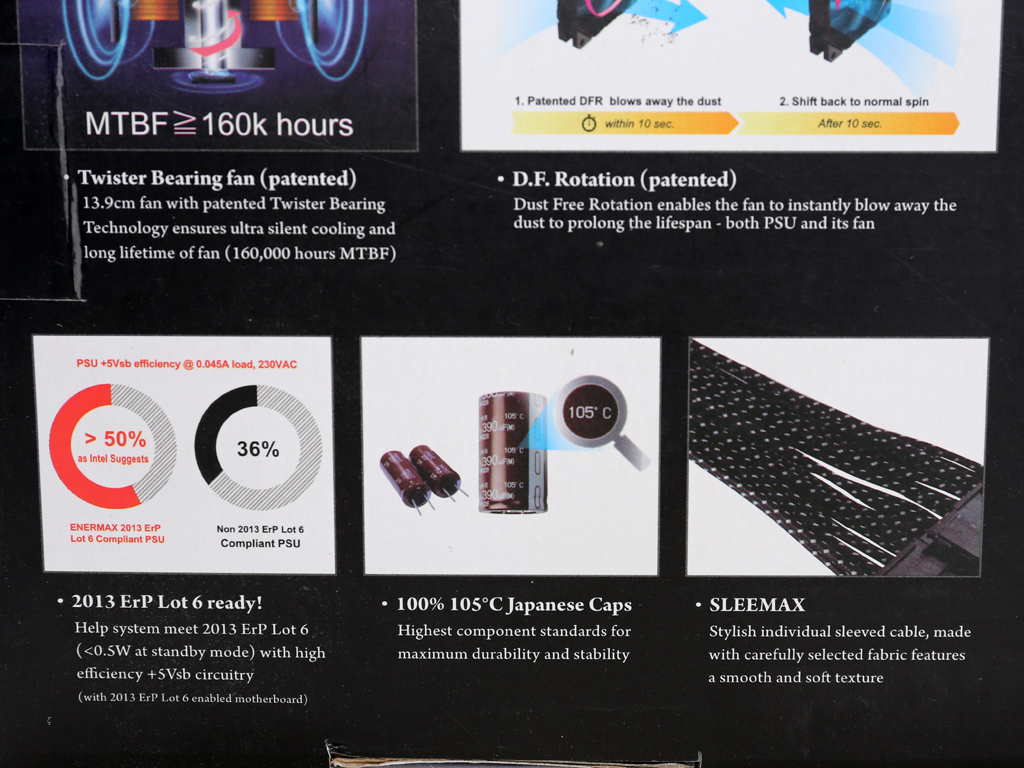
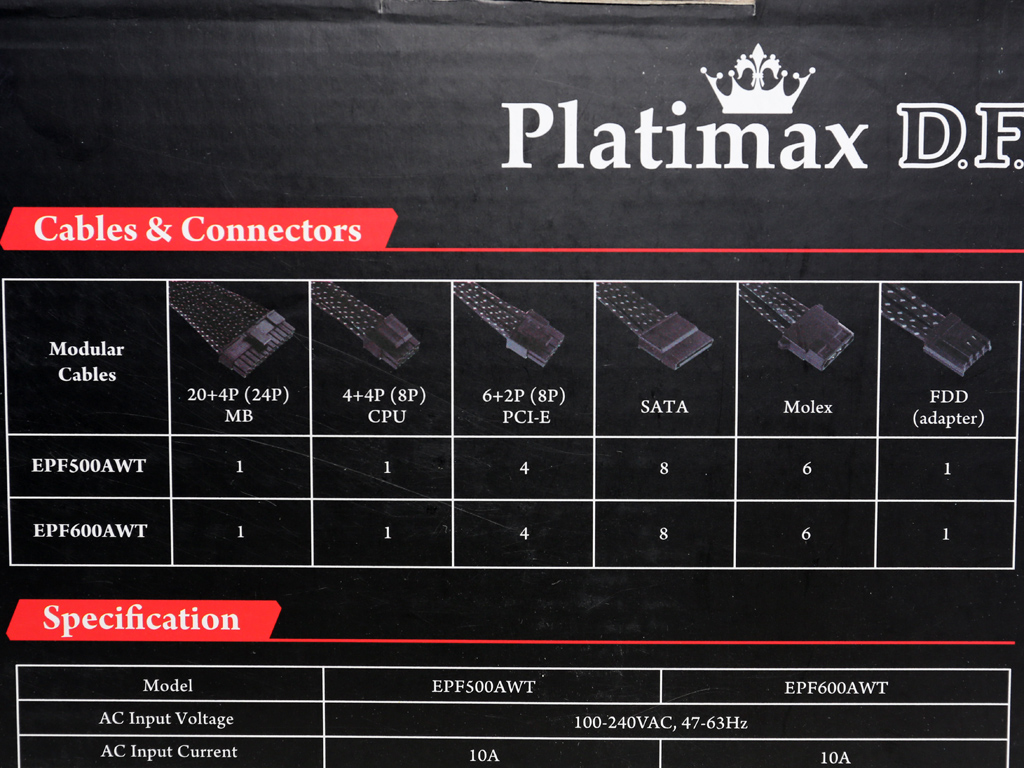
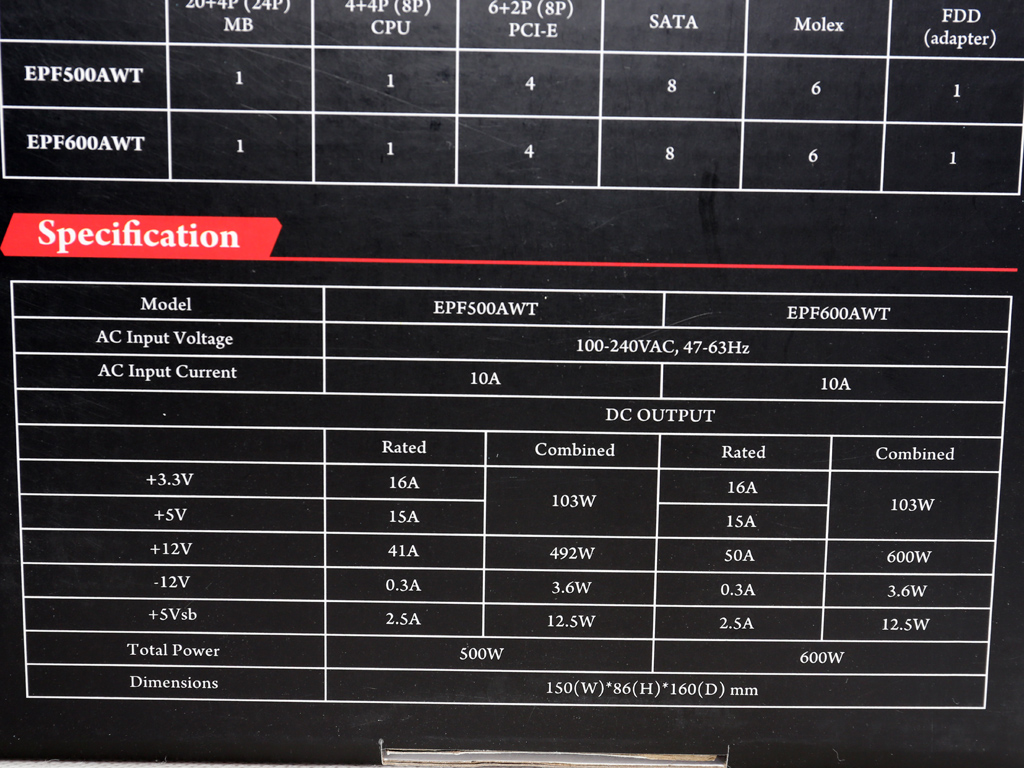
On the front of the box, Enermax uses an extra-large font for spelling out Platinum, which apparently describes the unit's efficiency certification. Right below "Platinum," we find the PSU's capacity, along a number of icons describing the most notable features: a five-year warranty, the twister bearing fan, high-quality electrolytic caps, and the fan's Dust Free Rotation feature.
Around back, a couple of diagrams show the twister bearing's anatomy and explain D.F. rotation technology, through which dust is blown away from the fan and the PSU's internals, allowing for improved cooling over time. Enermax also mentions the ErP Lot 6 2013 compatibility (less than 0.5W consumption in standby), the Japanese electrolytic caps, and the sleek-looking Sleemax cables. A table conveys information about the available cables and connectors of both Platinum D.F. units, and right below another table depicts their power specifications.
Contents
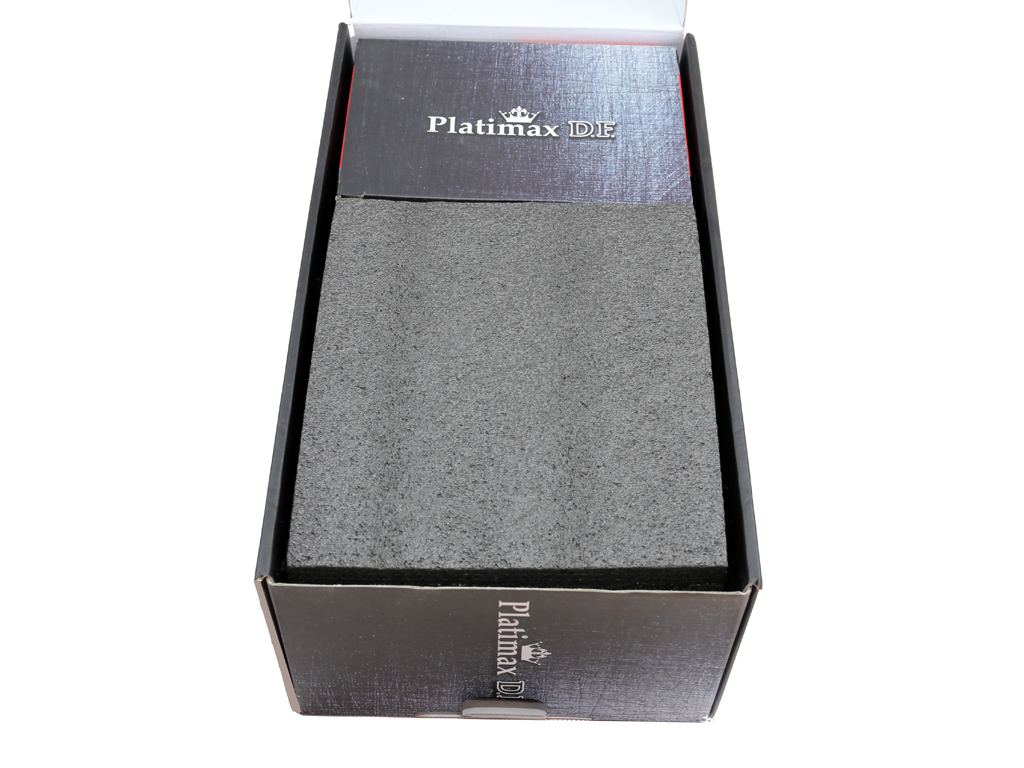
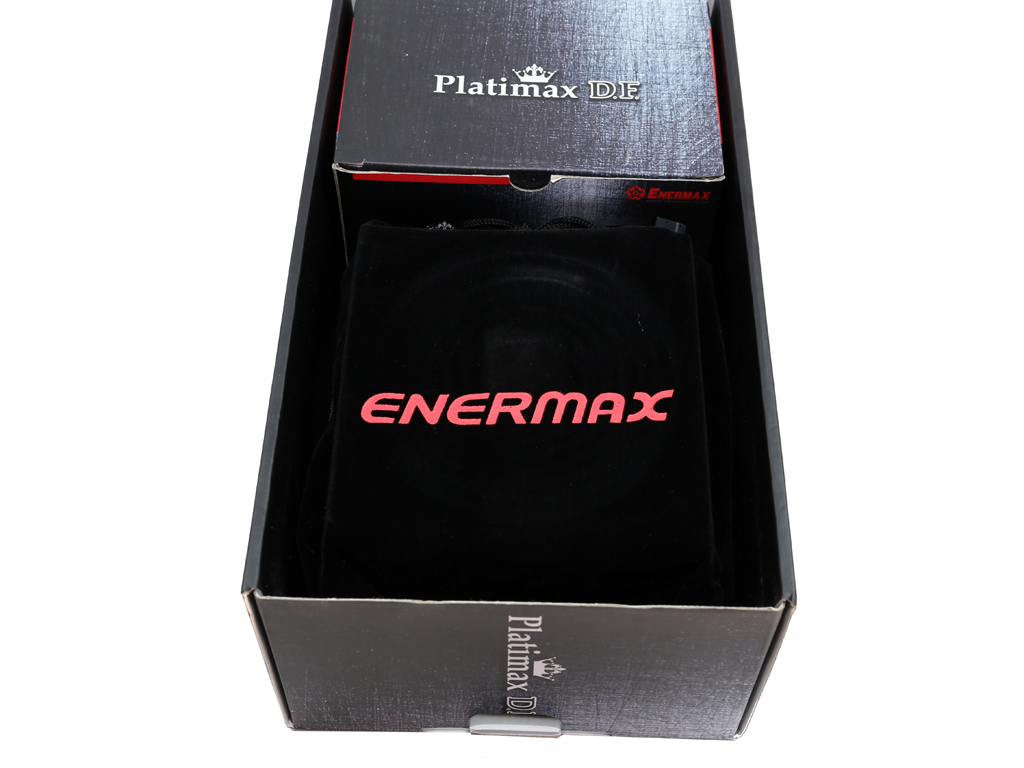
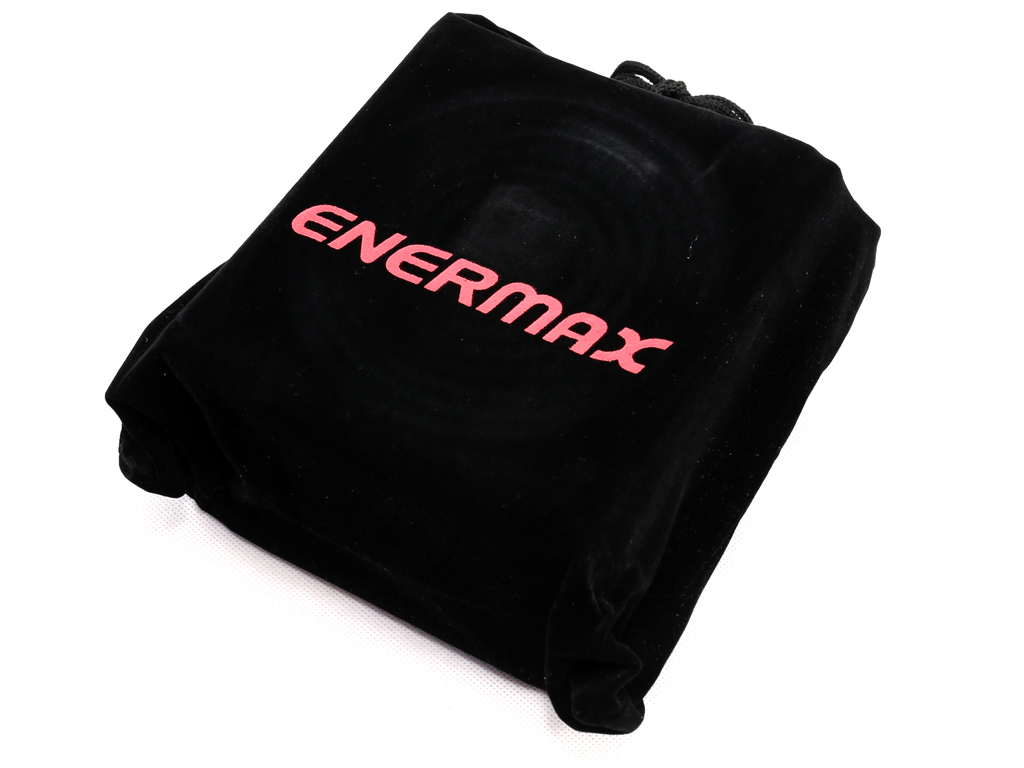
The PSU is protected by a couple of packing foam pieces inside the box. Moreover, it is installed in a felt bag. This is a nice touch, especially in light of Enermax's hefty price. You can use this bag to store unused modular cables once the PSU is installed in your case.
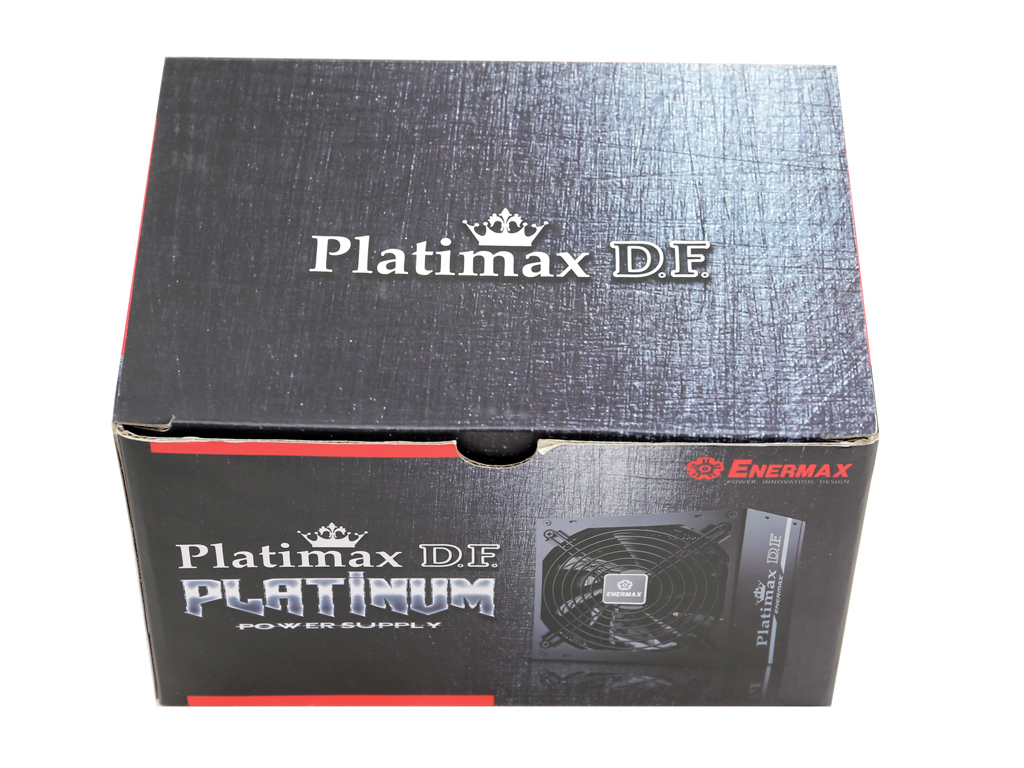
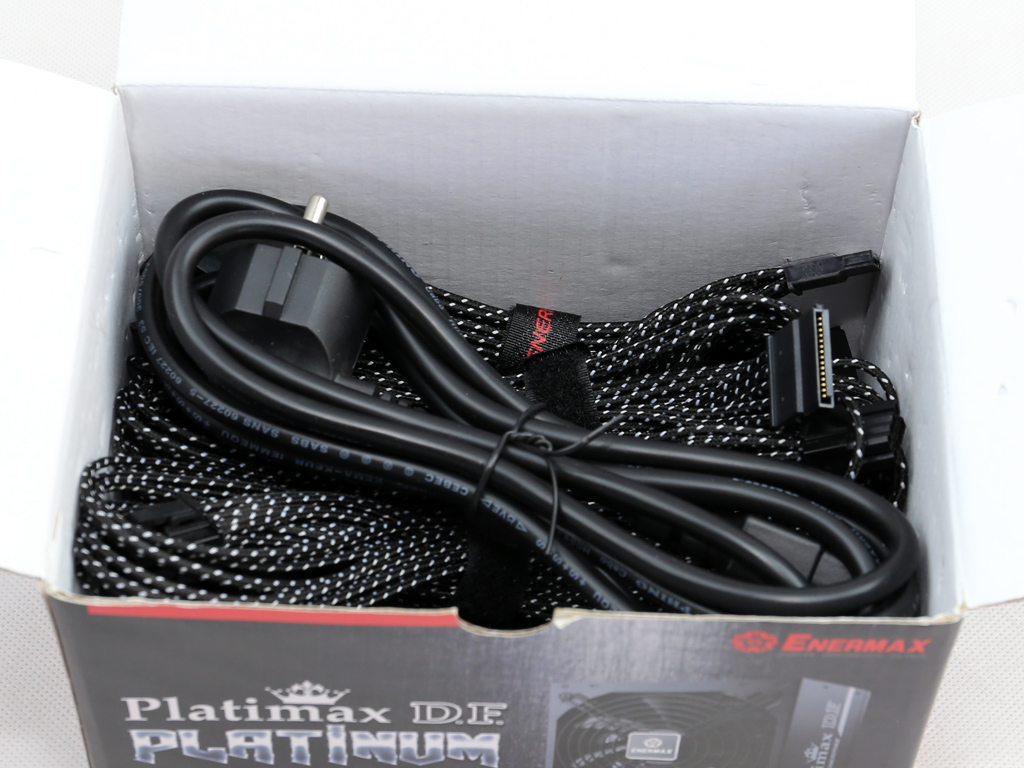
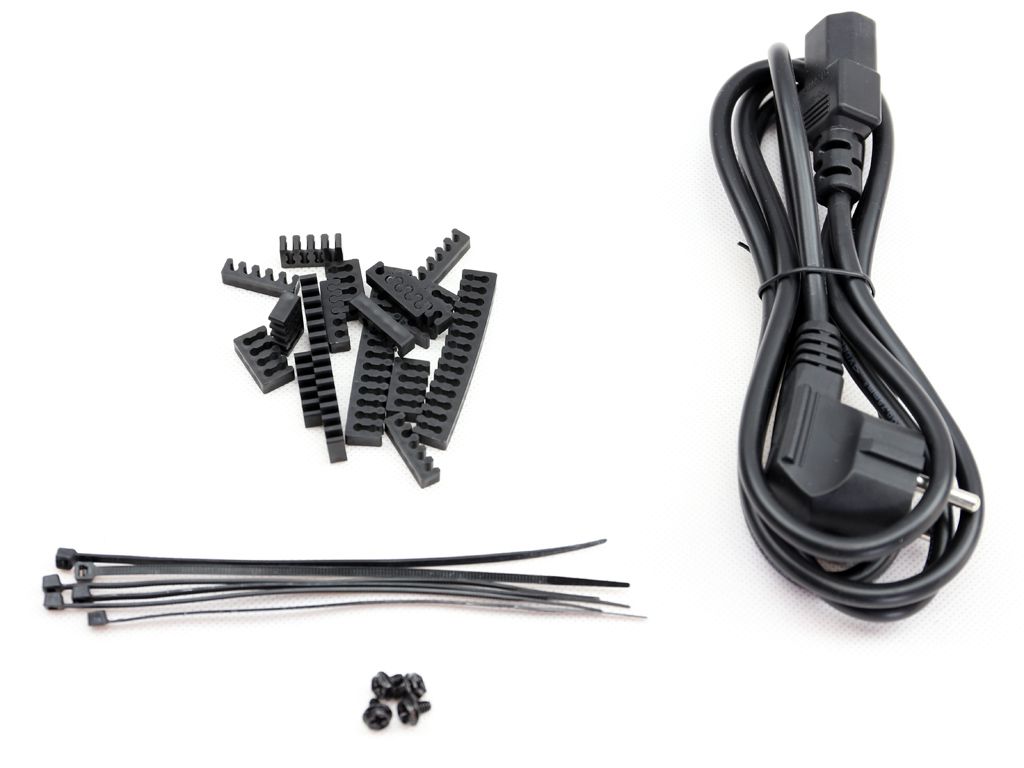
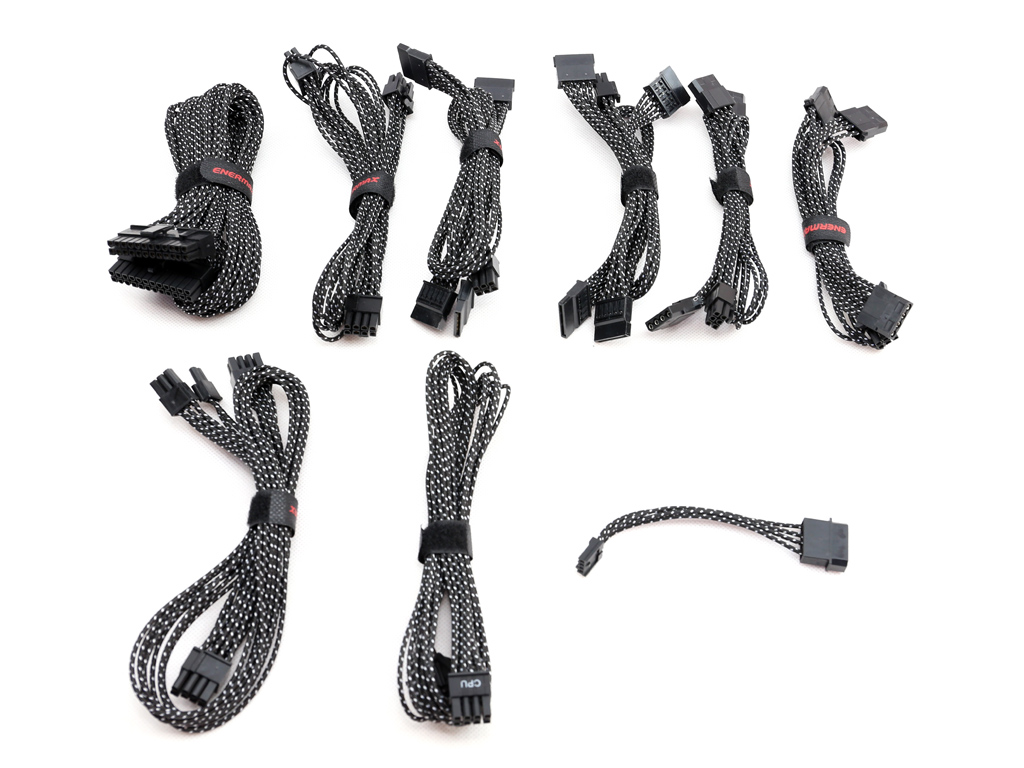
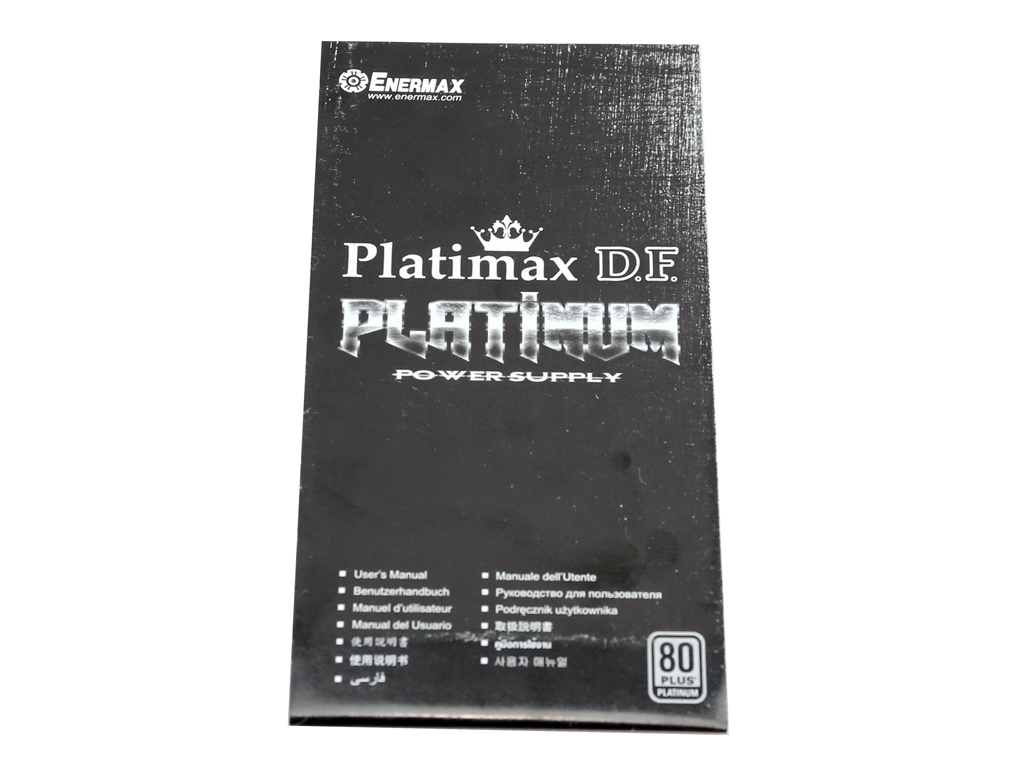
An accessories box holds the AC power cord and Sleemax modular cables, along with some cable organizers, several zip-ties, and a set of screws. The bundle also includes a small user's manual.
Exterior
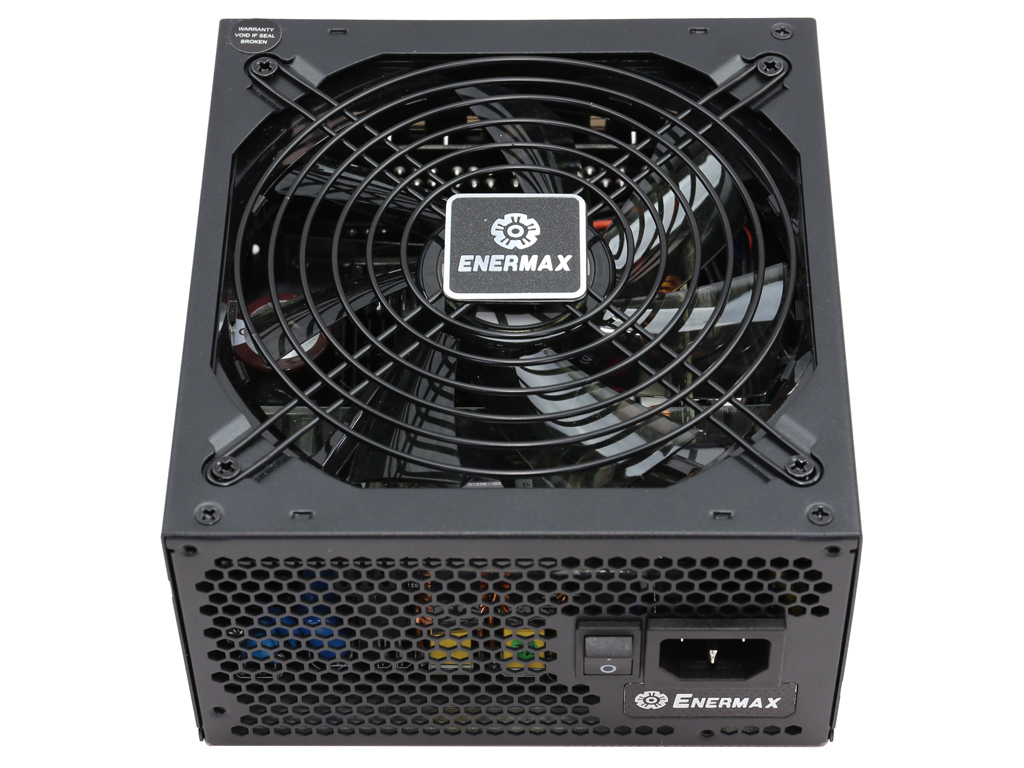
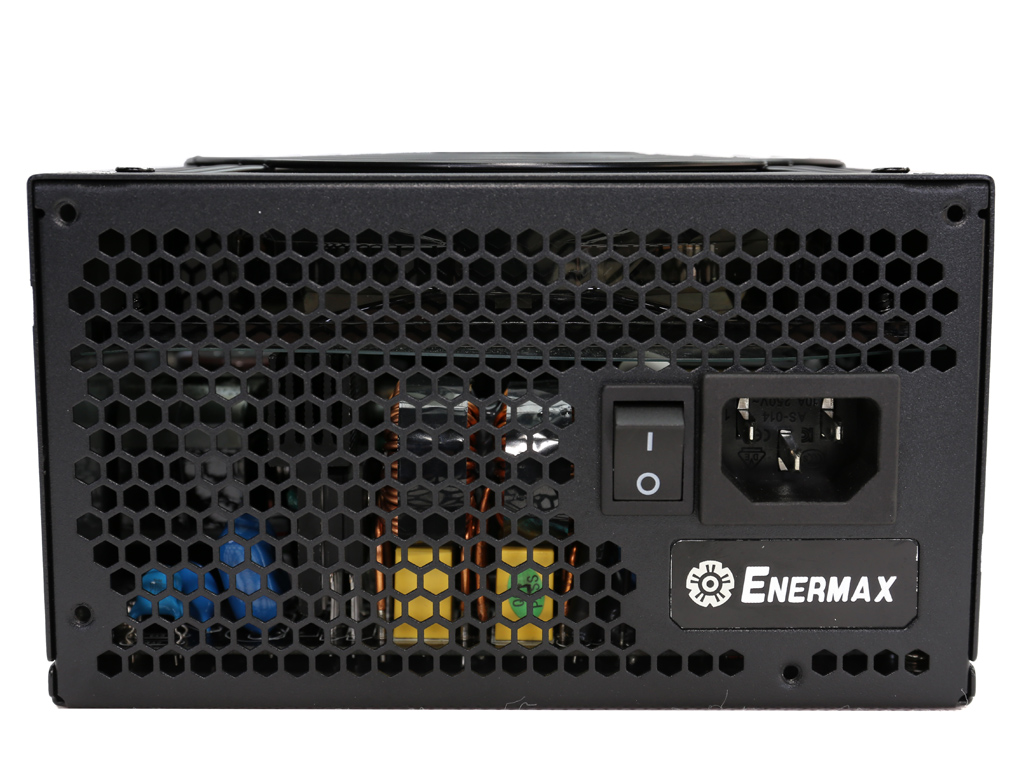
The external design isn't extraordinary in any way. We'd even describe it as boring. Nonetheless, this is a PSU, so external design means nothing to us. What really matters is the platform inside, hidden under the chassis' top cover.
Up front, there's an AC receptacle and a small power switch.
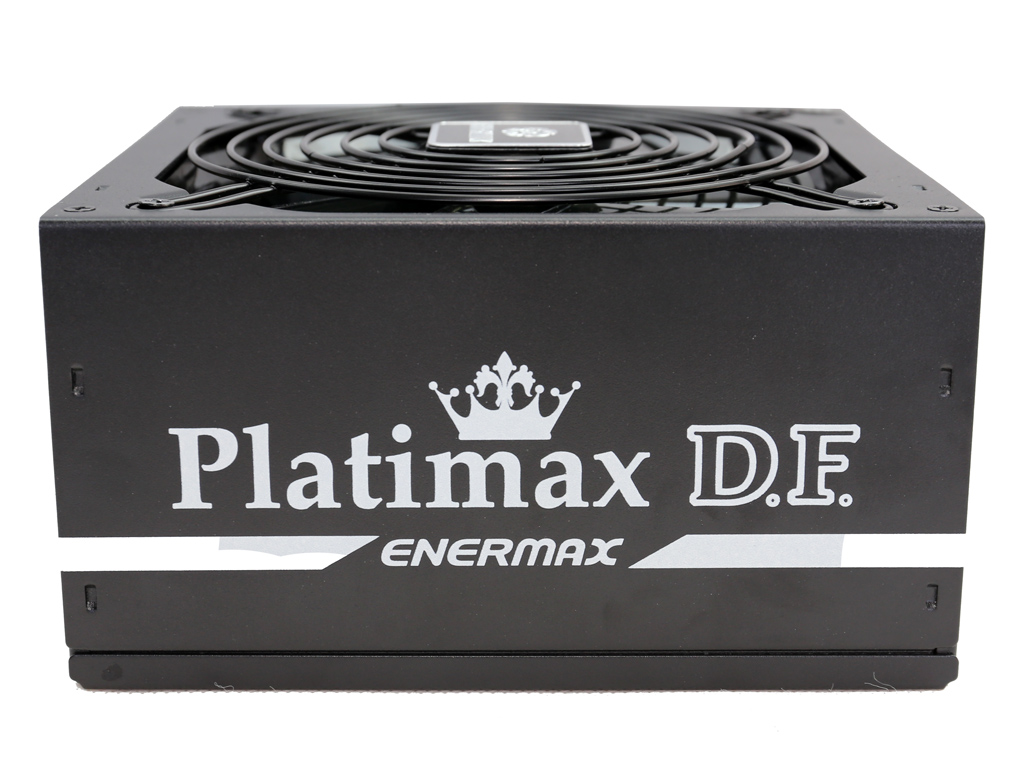
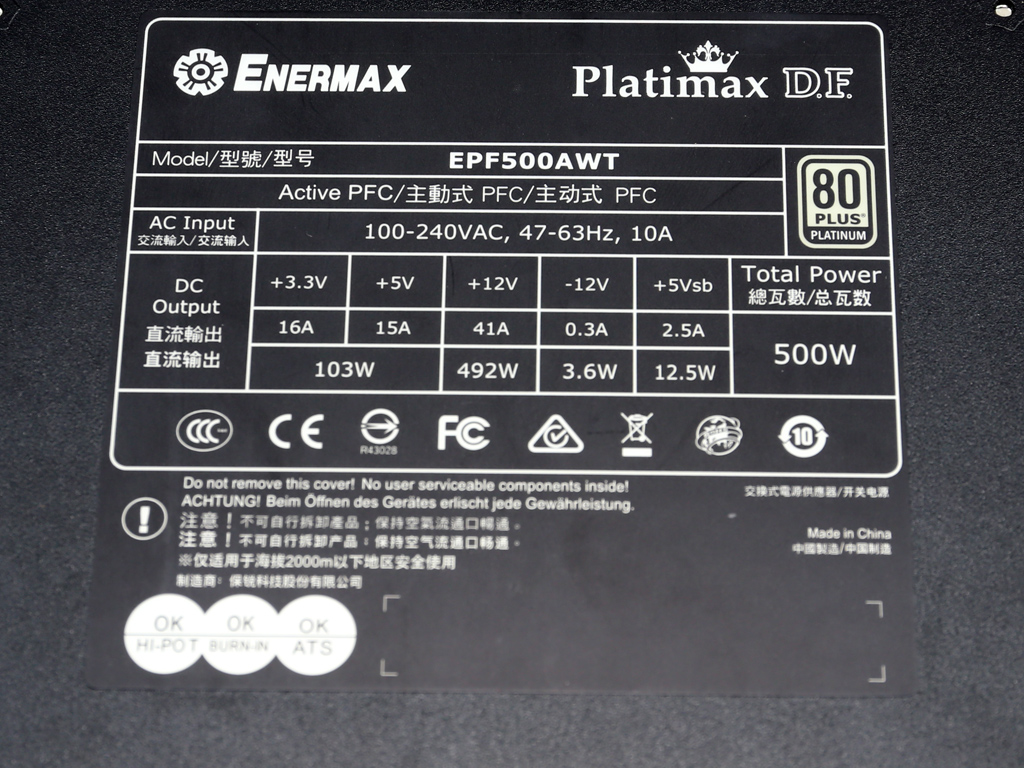
The series name is provided on the PSU's sides. A power specifications label is affixed to the bottom.
Get Tom's Hardware's best news and in-depth reviews, straight to your inbox.
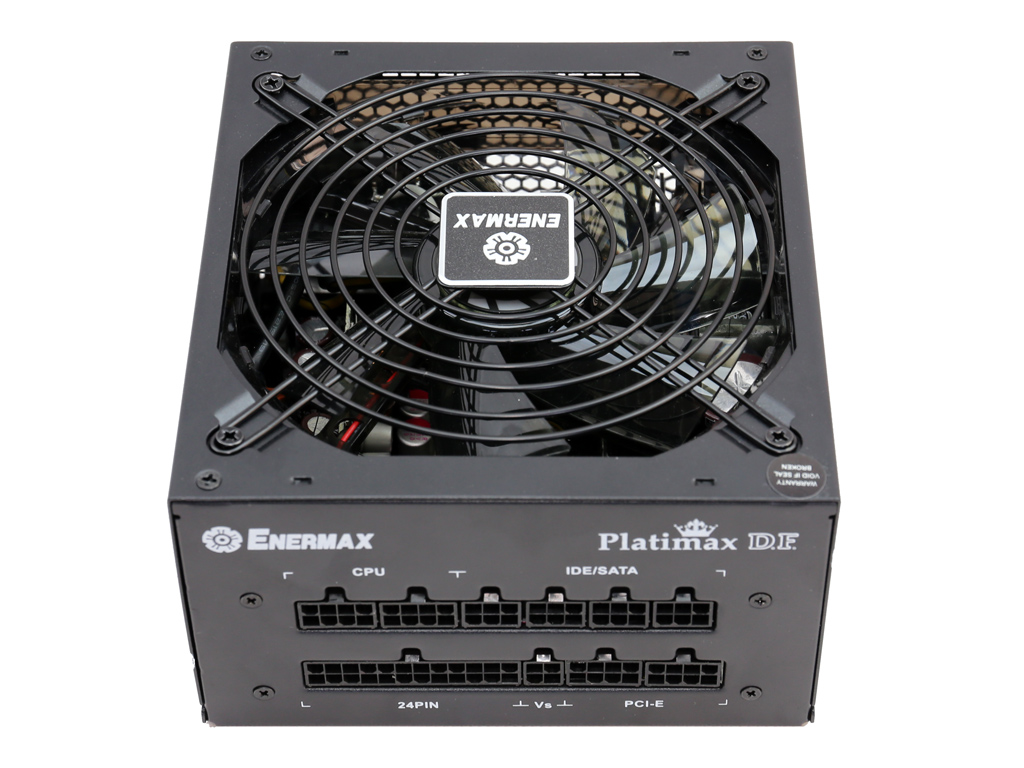
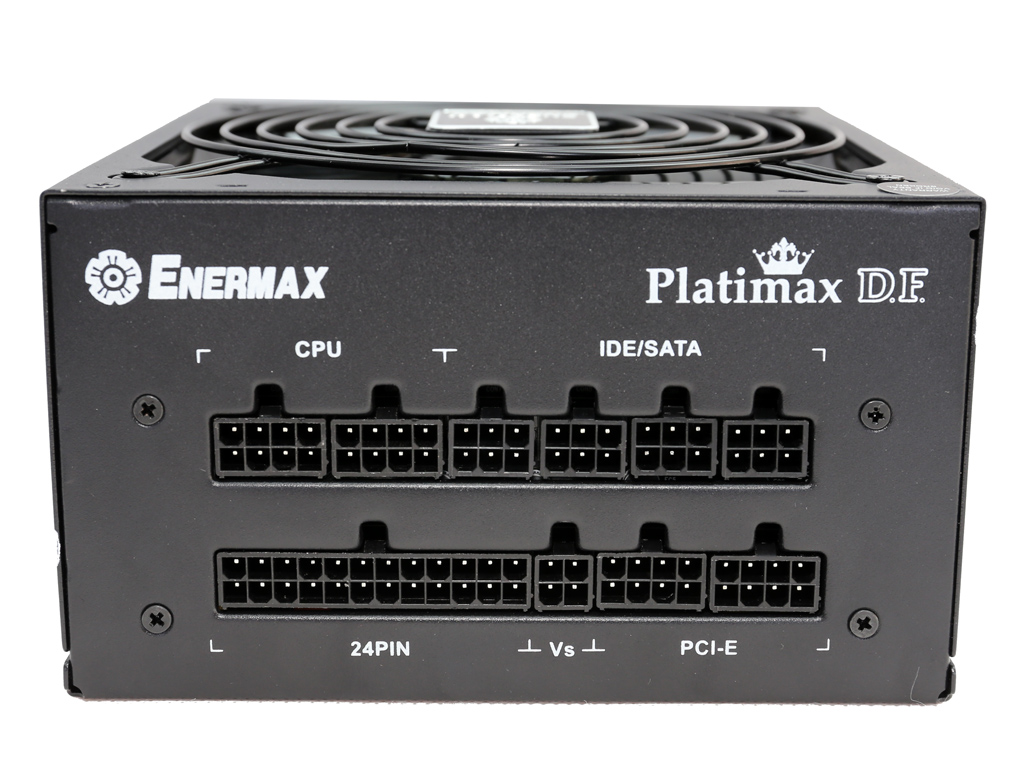
The modular panel includes two EPS sockets, but the EPF500AWT only comes with one corresponding cable. You could always track down another one if you need two EPS cables, but we wouldn't recommend doing that and using all of the PCIe connectors. This PSU's capacity isn't high enough to feed power-hungry parts over two EPS and four PCIe connectors at the same time.
It's troubling that the PCIe cables can be connected to the EPS sockets and vice versa. If you do this, the PSU's short circuit protection is activated (thankfully) and it won't start. That's a major flaw, and although Enermax labels the sockets, some folks might not pay attention to them. It's better to use different connector patterns for the EPS and PCIe sockets, making them incompatible.
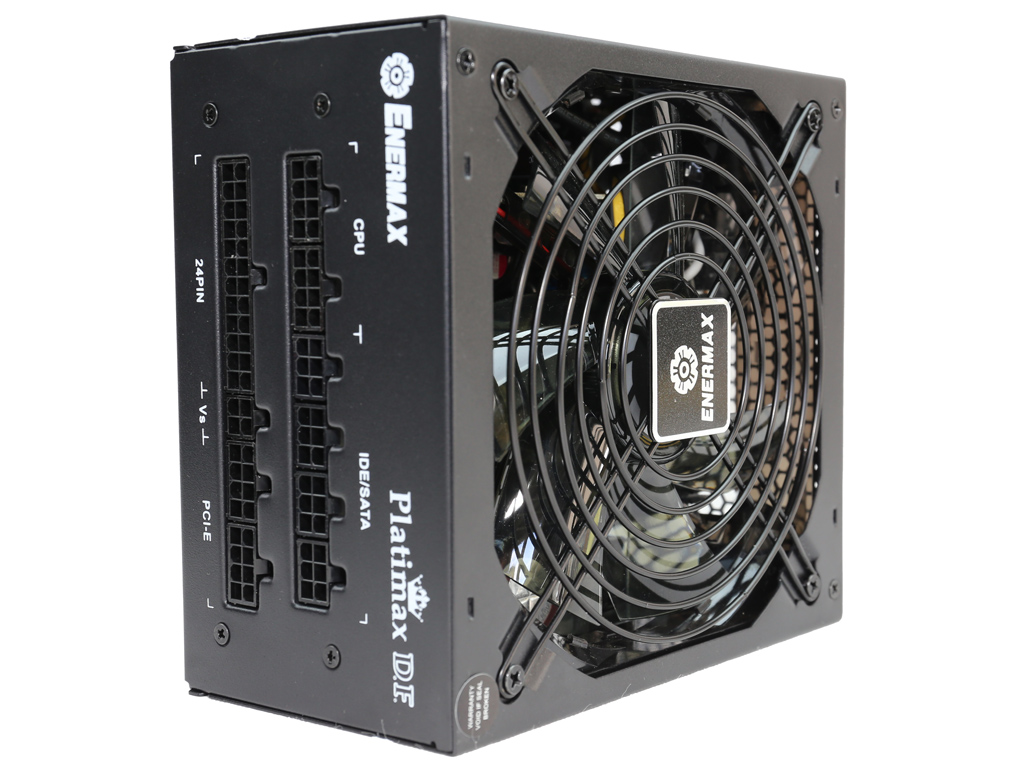
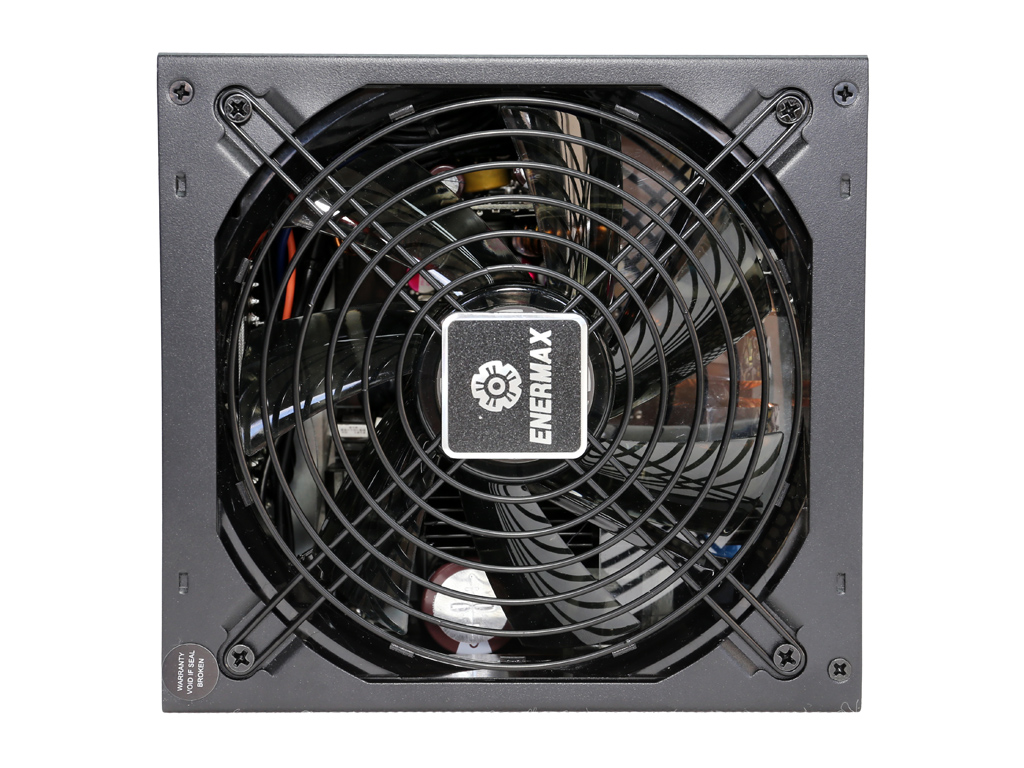
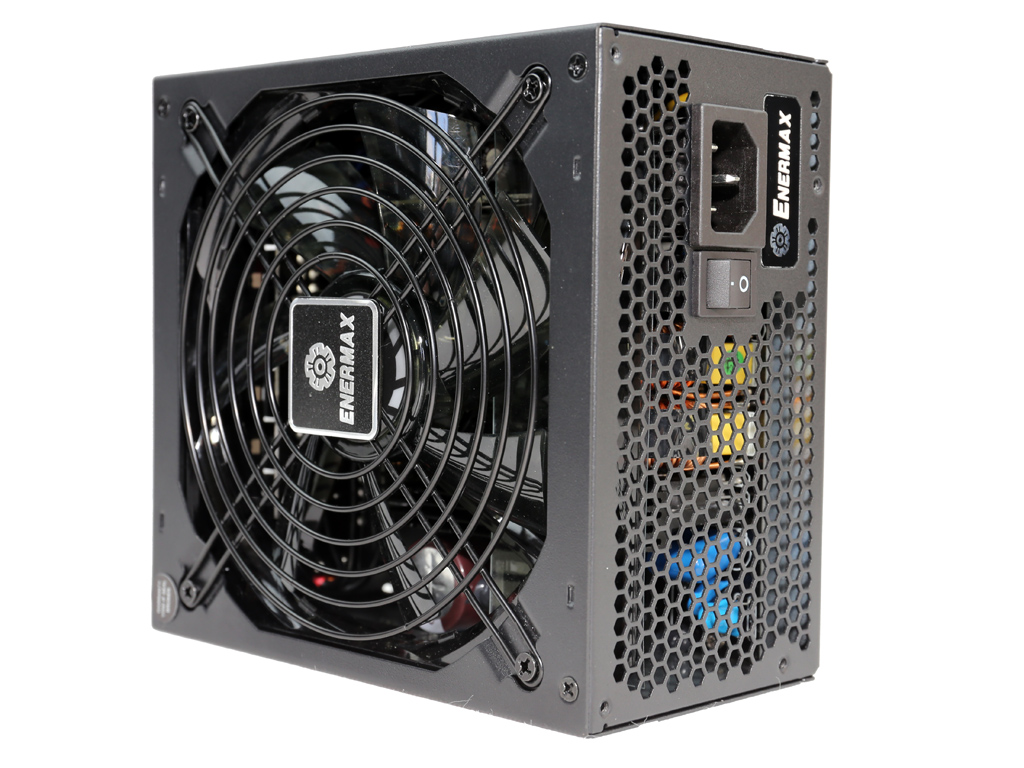
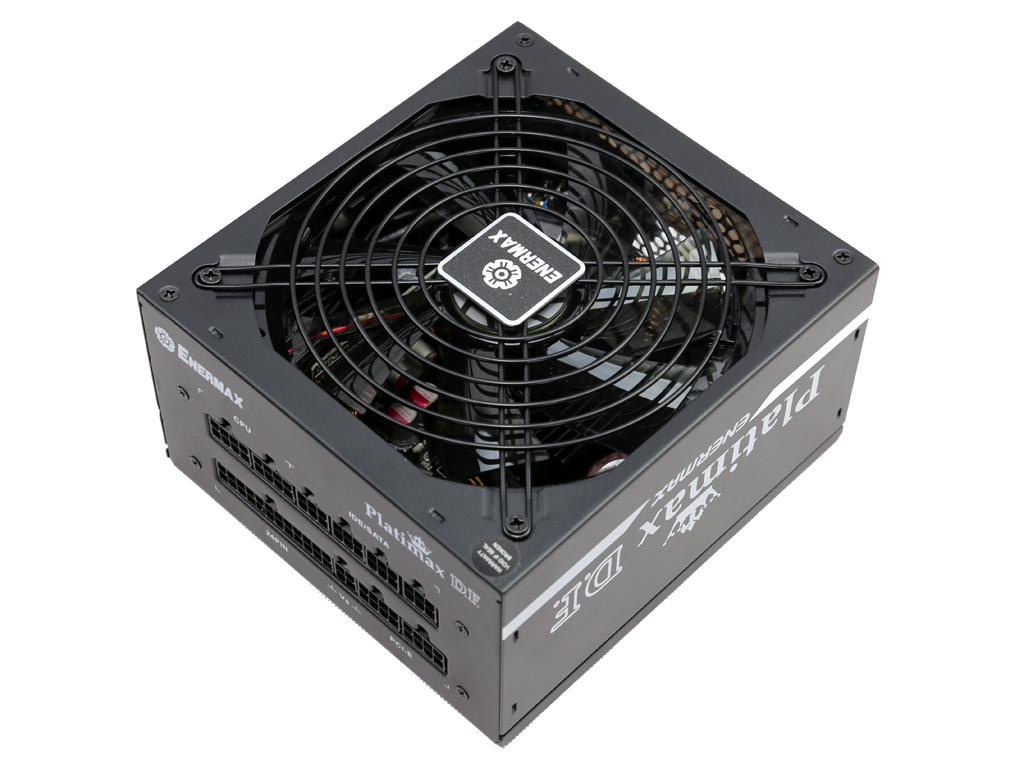
The dimensions are compact, and the finish is of pretty good quality.
Cabling
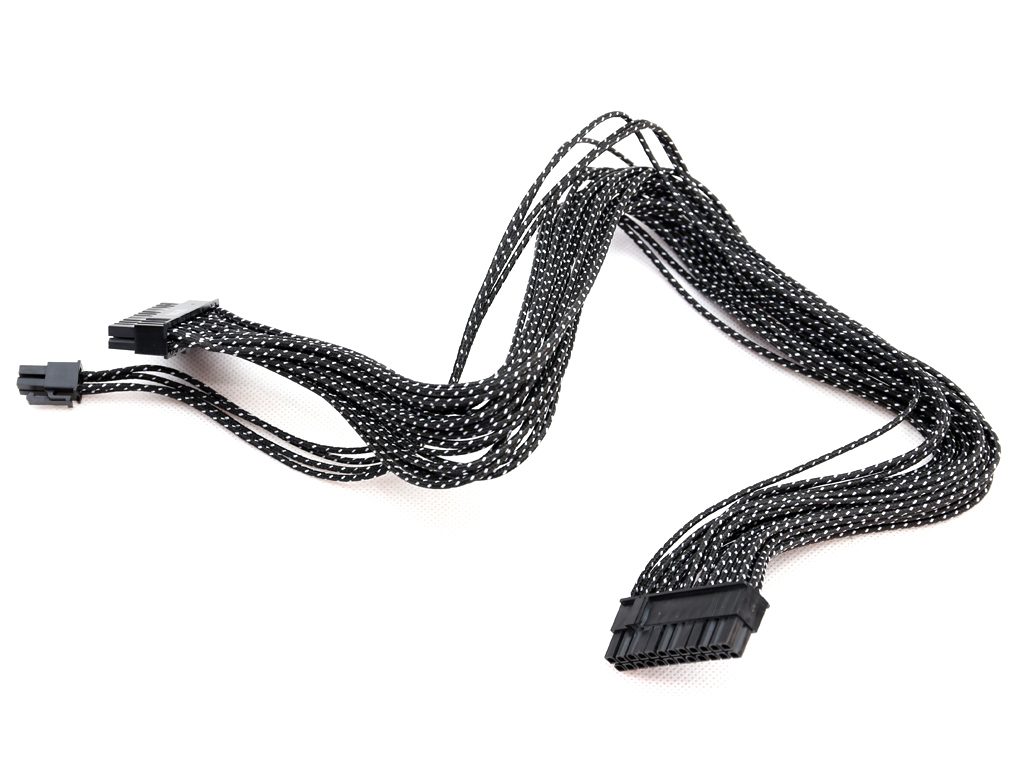
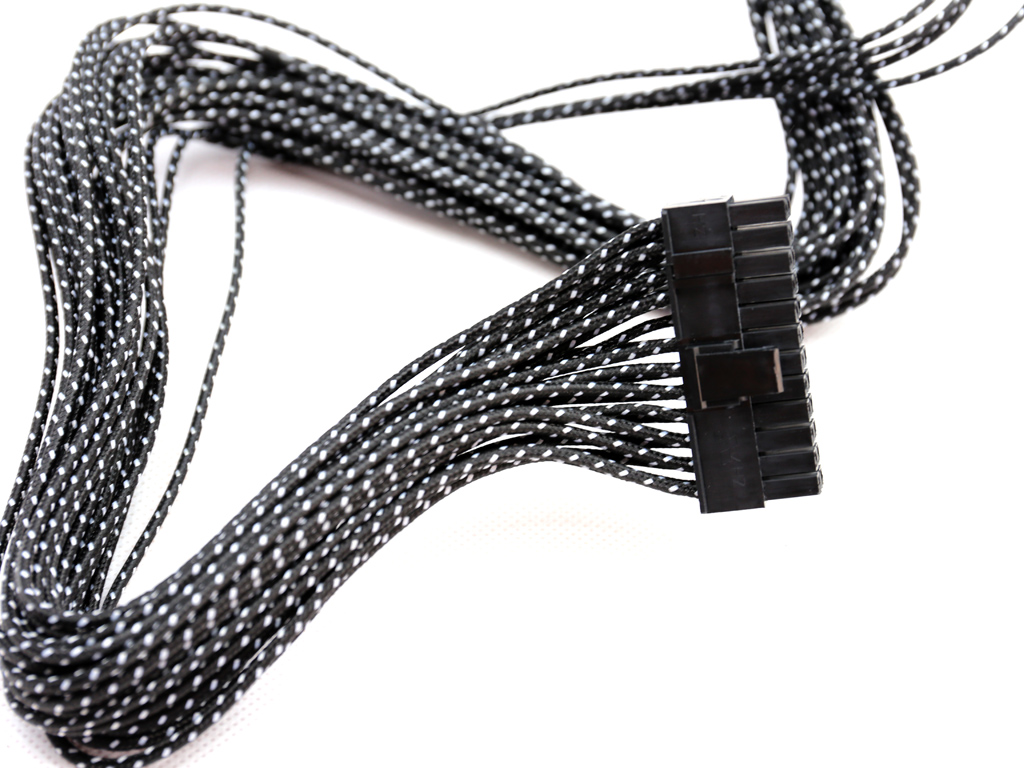
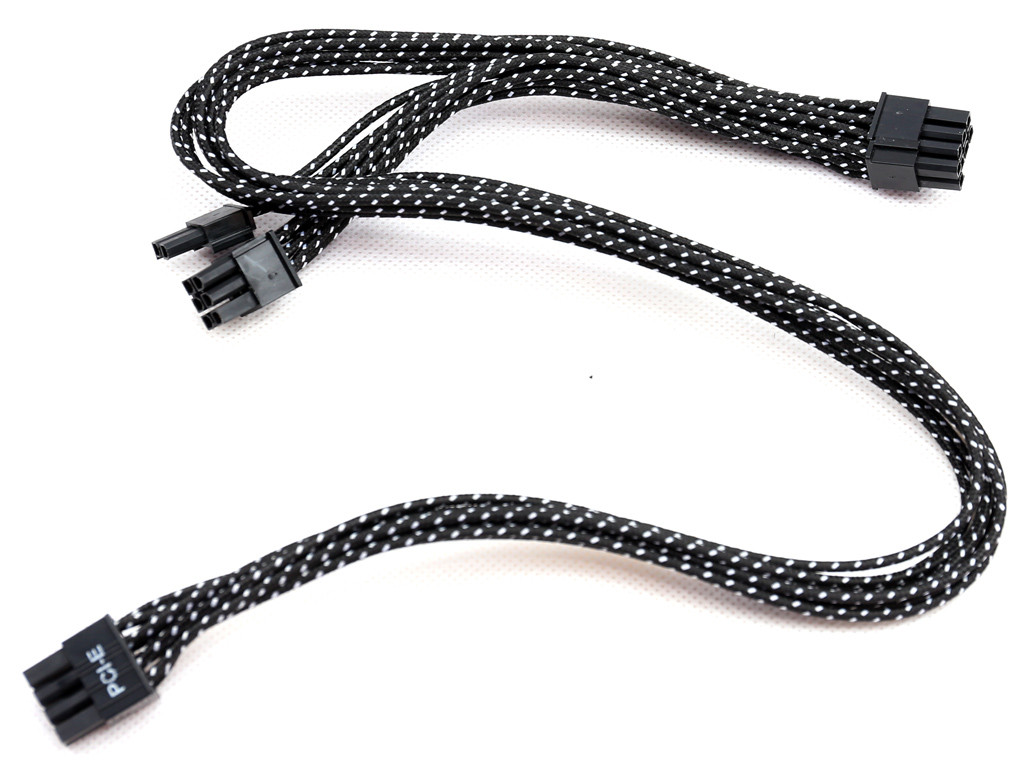
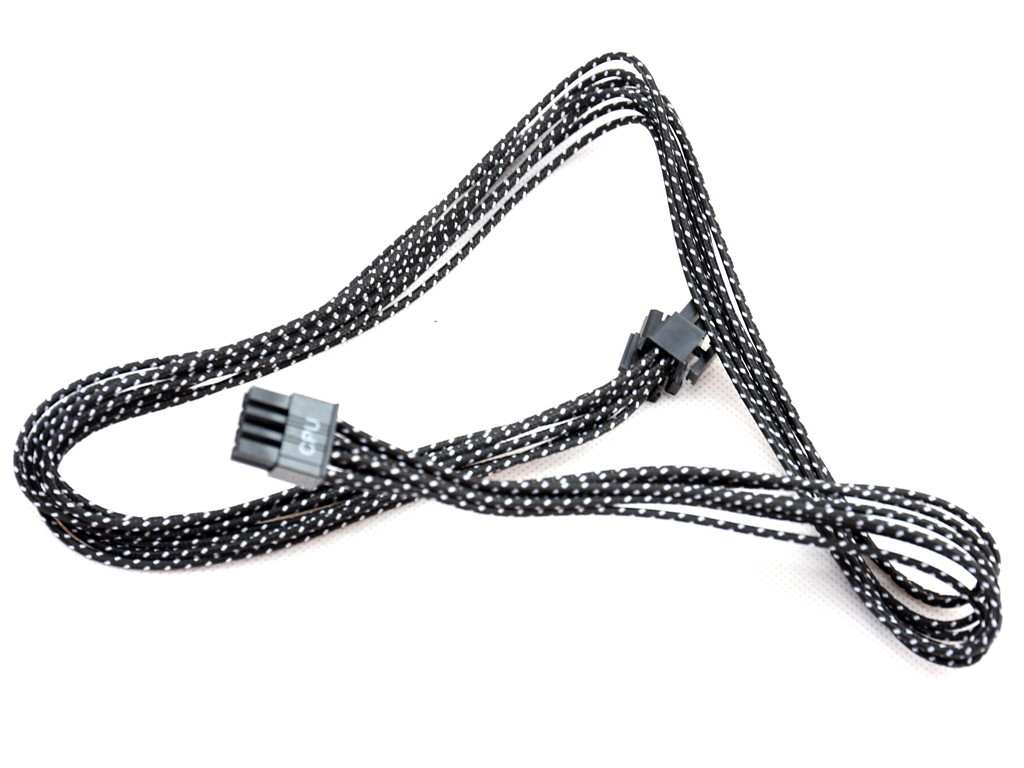
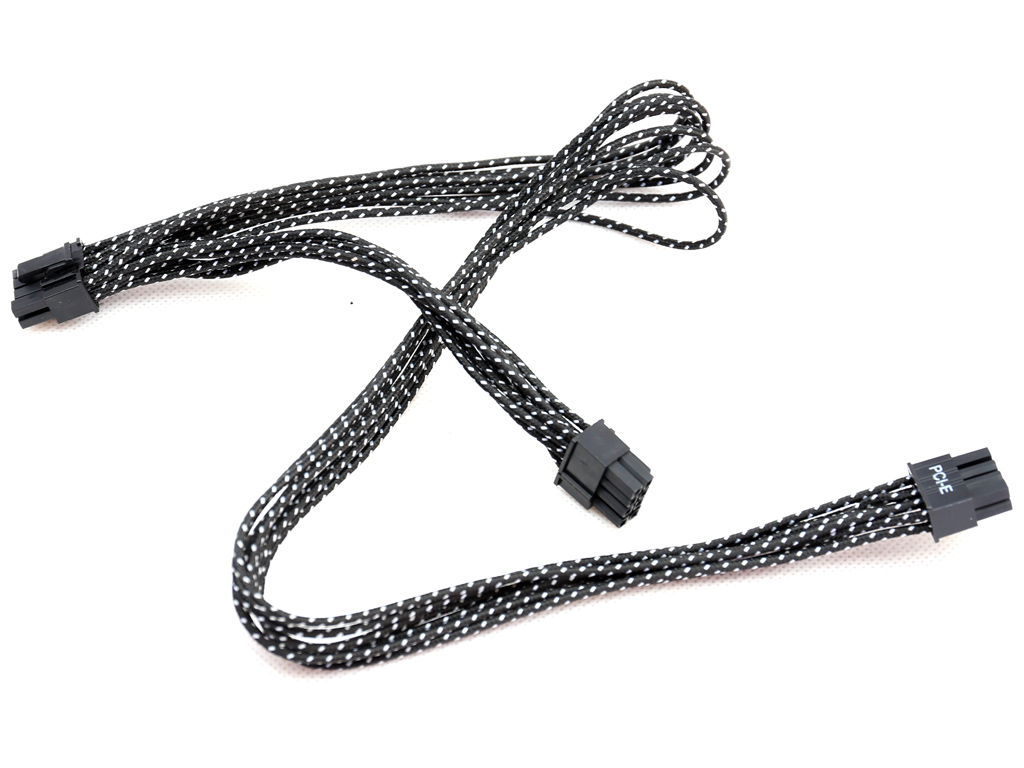
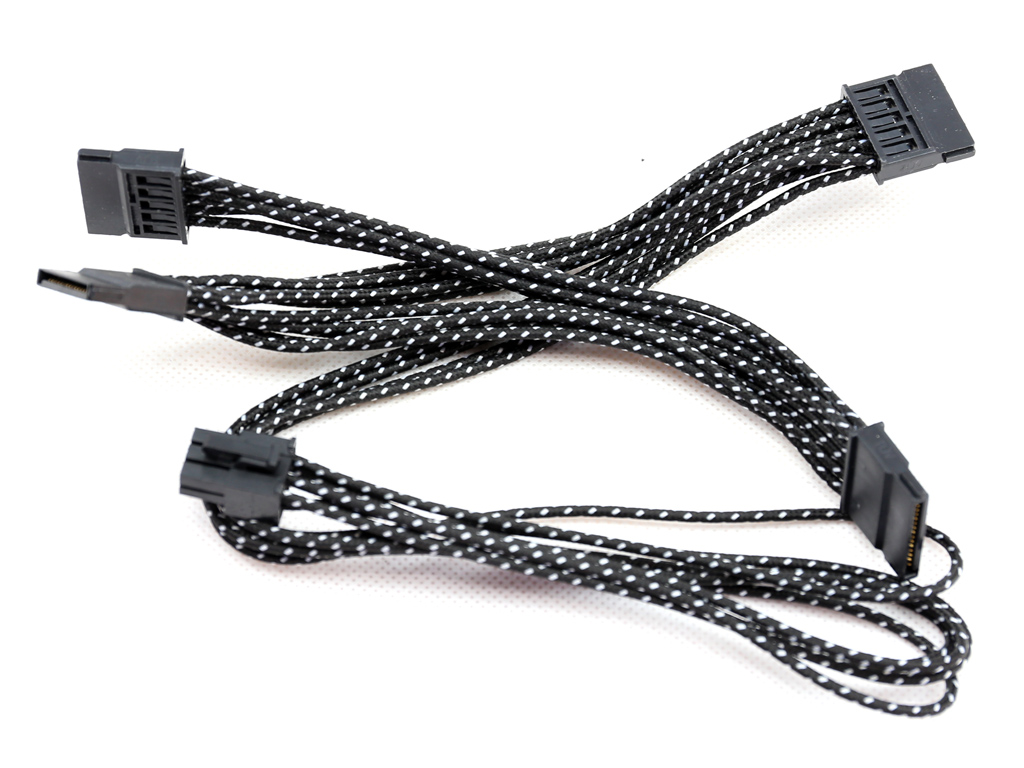
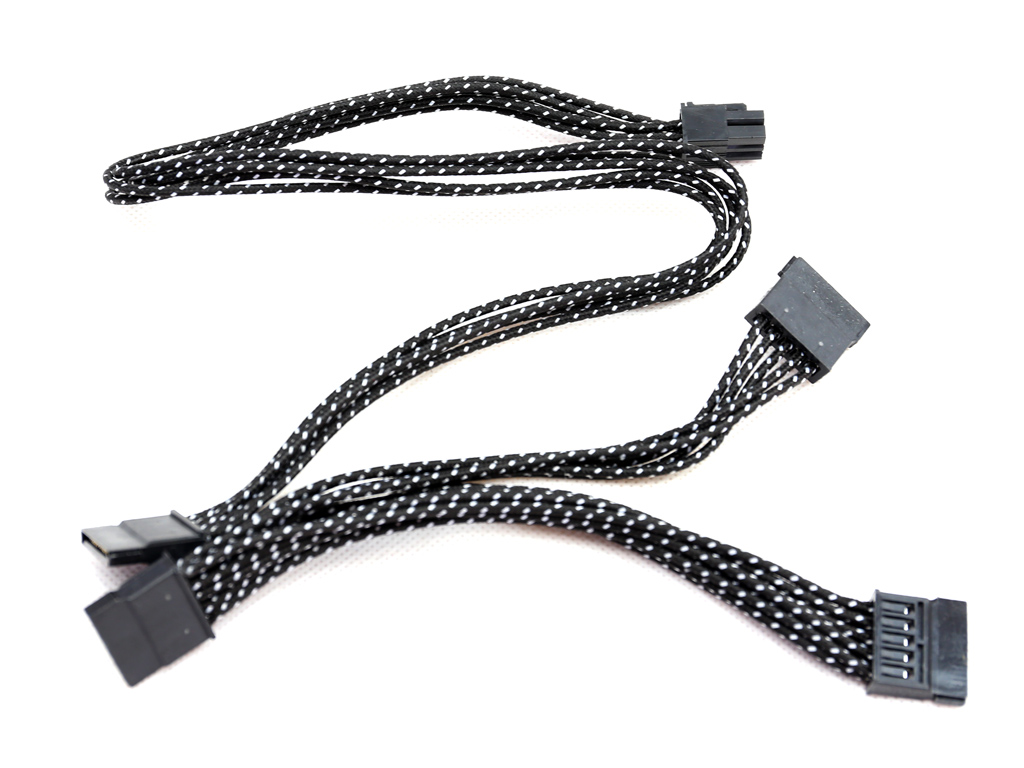
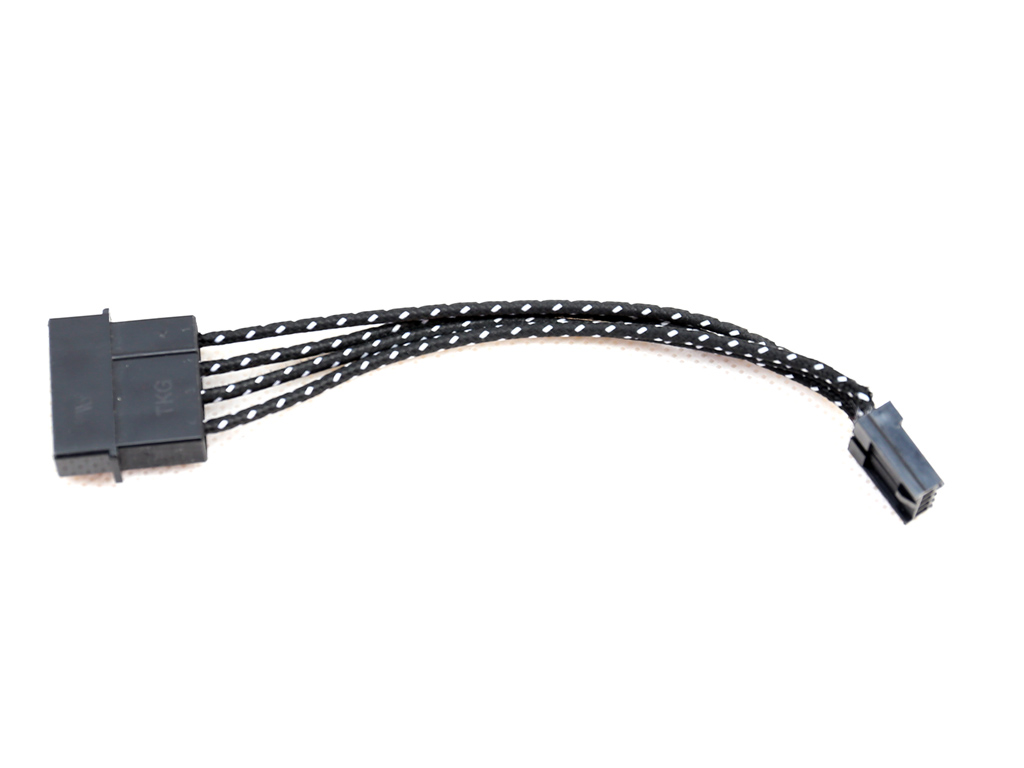
The individually sleeved cables look really nice, even if we're not particularly fond of them (they're harder to route than plain cables). However, anyone with a windowed case will probably like how much cleaner they look, despite the significant cost they add.
Current page: Packaging, Contents, Exterior, And Cabling
Prev Page Enermax EPF500AWT Power Supply Review Next Page A Look Inside And Component Analysis
Aris Mpitziopoulos is a contributing editor at Tom's Hardware, covering PSUs.
-
eglass I'd probably buy it. I like those cables and I'm running a 500W Enermax Liberty that is now 11 years old.Reply -
Anathemata How well does the dust-removal feature work? I mean, Van der Waals force is still a thing, and you need more than just a simple fan to blow out dust. Wouldn't a simple filter suffice?Reply
The sleeved cables are a nice touch. It'll be cheaper than buying a different power supply and separate sleeved cables. -
daddywalter Build quality isn't bad but could be better; lack of OTP is troublesome; and I'll agree with the reviewer that sleeved cables would be better offered as an option for modders. 80 Plus Platinum rating is a plus, of course; and 500 watts is adequate for most general-purpose computers that don't require multiple GPUs -- this PSU would probably outlast most SOHO builds, but then the initial price becomes more of a factor. Nice PSU, but IMHO not worth $140 with only a five-year warranty; at ten years I might consider it since then it should be good for at least three builds.Reply -
dstarr3 Reply19274544 said:I'd probably buy it. I like those cables and I'm running a 500W Enermax Liberty that is now 11 years old.
11 years is plenty of time for a company to have since dropped an amount of build quality. -
Robert Cook I'll add my voice, that auto play video needs to go. It is obnoxious, and adds lag to weaker devices.Reply
I like that cable pattern, it reminds me of the cables on my Enermax revolution 85+ 850W. (a great PSU despite its lower efficiency and age.)
How are poorly trimmed leads going to cause shorts if everything is locked inside a case? I only see that as an issue if you go dropping screws in there. -
Aris_Mp they aren't poorly trimmed only, some of them are really long and only a hair away from the other. Under extreme conditions this can cause problems (shorts) and there can be of course an EMI issue when leads are so close to each other. Also with such long leads the plastic shield under the PCB can get punctured or during the PCB's installation into the chassis, which applies pressure to the leads, the long ones will bend and probably get shorted; this means that some PSUs might be already broken. I don't think that every PSU that leaves the production line is tested, but only a percentage of them.Reply
There is a purpose behind the proper trimming of excessively long leads in every PCB that is installed into a metallic chassis. The use of a plastic shield under the PCB doesn't automatically solves all possible problems. -
WFang I'm hoping for a resurgence in power supply choices in the 500W and *LESS* category!Reply
I would rather see something like the amazing Seasonic Prime supplies in a 400W flavor than 600W and over...
Before I go on, I realize that if you run two GPU's or you really like to OC, obviously you need more and want more.. Great.. you already have a ton of great choices for those use-cases... I just wonder why we don't have more great quality choices in the lower Wattage ranges where probably a good 75% of even the enthusiast group could live comfortably.
I also realize that TDP - Thermal Design Power is NOT the same as power consumption, but it is easy to find TDP numbers, and a part that is designed to deal with e.g. 100W TDP is likely to consume around 100W (or less) even in peak. As such it becomes a handy metric for back of the envelope power budgeting that still ends up being fairly conservative.
With CPU's now more often in the lower half of 45W, 65W, and 95W TDP and the more recent GPU's all sitting at 300W or less in TDP, I'd argue that for non-OC'ed systems with one GPU and 1 or 2 HDD's and maybe an SSD, a great high efficiency 350W to 400W PSU will be a great choice. Feeling like that is pushing it? Fine, go 500W... but I don't see why you'd shop higher than that (for this use-case). Yet, good quality Titanium, Platinum, or Gold efficiency PSU's seem so hard to find in the sub 500W range. :(
On a side note, since I'm here complaining anyway: A looong time ago I heard Tom's mention the Seasonic Prime 600W fanless PSU, anyone know if/when that will become available in the US? (Or anywhere?)??? -
Marcus52 Reply19274544 said:I'd probably buy it. I like those cables and I'm running a 500W Enermax Liberty that is now 11 years old.
Enermax was my favorite PSU maker when they made their own, but unfortunately they've chosen OEMs that are "adequate" not "great" to replace their manufacturing facility. I've paid their premium in the past, but right now EVGA is on the top of my list. Super Flower makes their top-of-the-line PSUs and build quality is superb, as are test bench results.
Seasonic is also on my list of "will buy", and several other brands use Seasonic or Super Flower, so I wouldn't be opposed to buying one from someone like Corsair - as long as it tested well on reputable hardware sites.
Never buy a PSU that doesn't review well. I've learned that the hard way. Build quality matters.